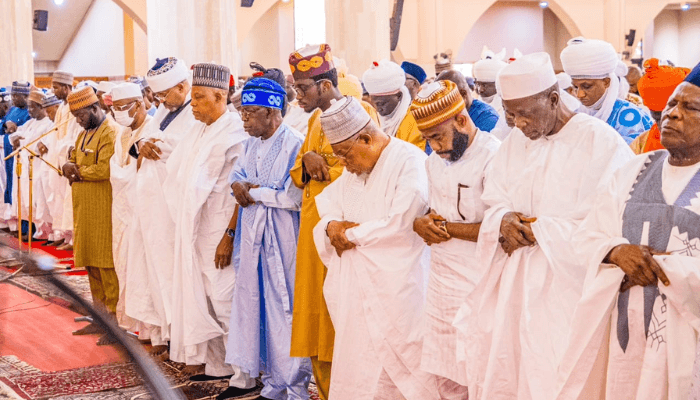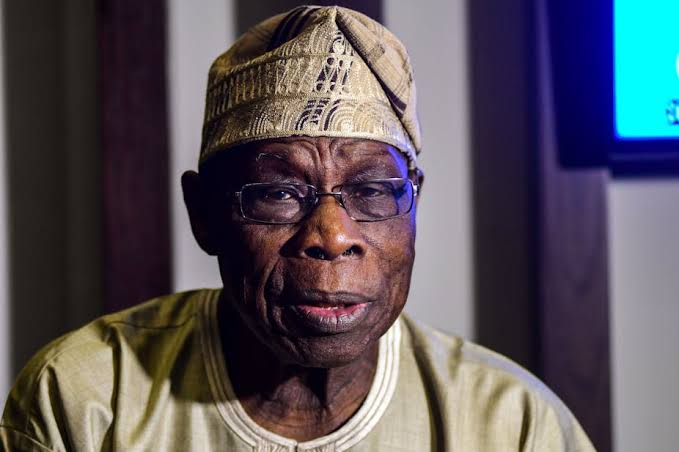Blog
‘Ga’nu si’ and the politics of business and religion among Yoruba muslims

With these traditional titles, perhaps much is expected of him to understand the dynamics of language use and the emotions surrounding implications of word usage. Days after his mother’s demise, K1 keeps receiving guests commiserating with him. In one of such visits, a conversation he had with a guest in his living room went viral. In the conversation, he was glaringly informing the guest, expressing his frustrations and also highlighting the schedules for the eighth day (Fidau prayer, commonly practiced among Yoruba Muslims). The schedule narration obviously states that he is not celebrating the eighth day in his personal house and that he is frustrated that some Muslim clerics keep coming to his house using the slang “Ga’nu si” to describe their visits. In Yoruba language use and implication, some words signify derogation, “Ga’nu si” is a typical word that comes as such. It typifies joblessness, intention to beg, and lack of purpose and direction. A typical Yoruba person would not feel mentally comfortable to possess such a description. Literally, the word seems disturbing, but in context it sounds different.
As a Yoruba Muslim, it is a culture that you don’t perform activities about the death of your parents in your house; it is done in your parent’s house. It is understandable why he said: the Muslim clerics refuse to visit Fidipote (his ancestral home); rather, they choose to keep visiting his personal house. As a Yoruba Muslim man, he sees himself as a son whose loyalty for the death of his mother should be celebrated in Fidipote and not his home; indirectly, it is also a way of recognising the fact that he has elderly siblings; it is not about him alone. However, he had to pay the price of fame.
Read also: Ethno-religious politics: Nigeria lacks sophistication for issue-based campaigns
Perhaps the vituperations that came with the word—”Ga’nu si”—wouldn’t have been significant if Sheikh Sulaiman Faruk Onikijipa (Mufti Diyar of Ilorin) did not request that he should apologise publicly at the Fidau prayer in honour of K1’s mother on January 24, 2025, at Ijebu Ode. The Mufti of Ilorin requested the apology from K1 on the grounds that Yoruba Muslim clerics are angry about using the word “Ga’nu si” to describe their visits to his personal house. Such requests for an apology should have been discussed privately, considering the fact that they are close family friends. The refusal to apologise created new layers of vituperations and also became a phenomenon used for skits, music composition, video blogging, common sayings, and comedy. Whether the Muslim clerics felt angered or not, it is a given that he would spend money for the category of Muslim clerics invited to officiate at the Fidau prayer; the video evidence showed that.
Some comedy skits and video blogs have attacked the Yoruba Muslim clerics, claiming that what “Ga’nu si” derogatorily means applies to them because of the officiating roles they play at events. And there are allegations of overdoing the roles at events, which makes them appear to choke the organisers as they request layers of money to appease. The Yoruba Muslim community in each town, state, and city is highly organised, as there are leagues or councils in charge of Islamic affairs. The Imamate institution is well defined to take charge of issues, even though their organisation may appear disjointed. Also, the Muslim of Southwest Nigeria (MUSWEN) is a more cosmopolitan agglomeration of Muslim clerics, scholars, and professionals that perform the think tanks on the affairs of Muslims. There are ideological underpinnings that may make disposition to issues differ. The concept of Fidau prayer is highly contested, as some scholars believe that it has no basis in Islam; therefore, those who hold that view don’t even have the cause to fault K1 for using the word “Ga’nu si.” They are of the view that if a Muslim dies, visitors are expected to troop in with decorum and not to disturb family members of the deceased. In fact, if you visit, you should endeavour to bring gifts along, such as food and provisions, to help the families ease their grieving times.
However, K1 finds himself in a situation where he has to give, rather than be given. On Fidau prayer, some findings revealed that it was a method used by Yoruba Muslim clerics of a century ago to divert the attention of Muslims from traditional religious practices, which signifies polytheism. Then, traditional religious worshippers carry out sacrificial celebrations on some days after death to appease the gods. Realising how Yoruba Muslims engage in the practice, the Muslim clerics introduced eighth-day prayers for the deceased to divert the attention of Muslims away from polytheist practices. Over time, it has been a culture Yoruba Muslims adopt across generations. Fidau prayer appears as a culture of camaraderie, socialisation, and family get-togethers given the nature of modern times.
K1 might not have really attended much formal schooling, but he has displayed some levels of entrepreneurship; Fuji music is business, and his other businesses in hospitality, farming, and food processing throughout Yorubaland are business! There are several Yoruba Muslims with similar life trajectories. To the Yoruba Muslim clerics, entrepreneurship also differs; more of social entrepreneurship, there are scholars whose Madrasah (Islamic schools) are evolving into universities, whose Asalatu congregations have evolved into establishing formal schools, service industries, factories, and universities. Everyone looks on to God!
Mutiat Titilope Oladejo (PhD, MBA) is a historian, author, academic and public analyst based in Ibadan, Nigeria. She authored four books revolving around Nigerian history.













